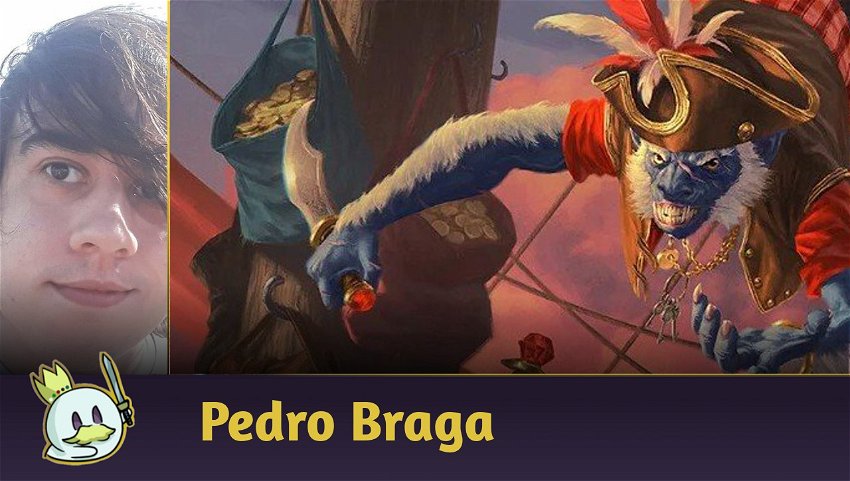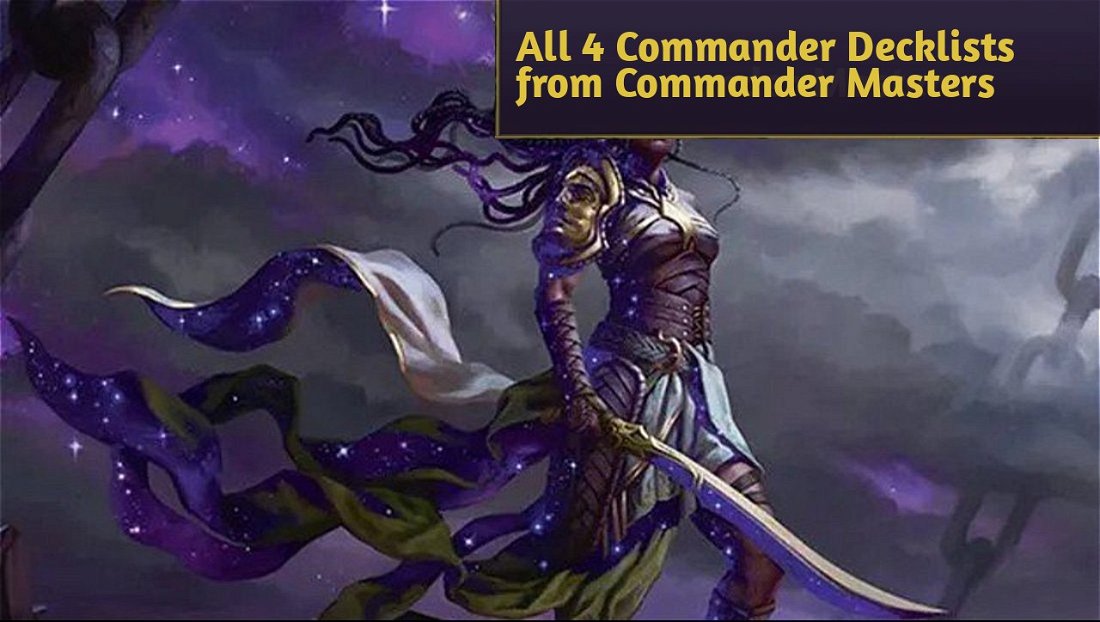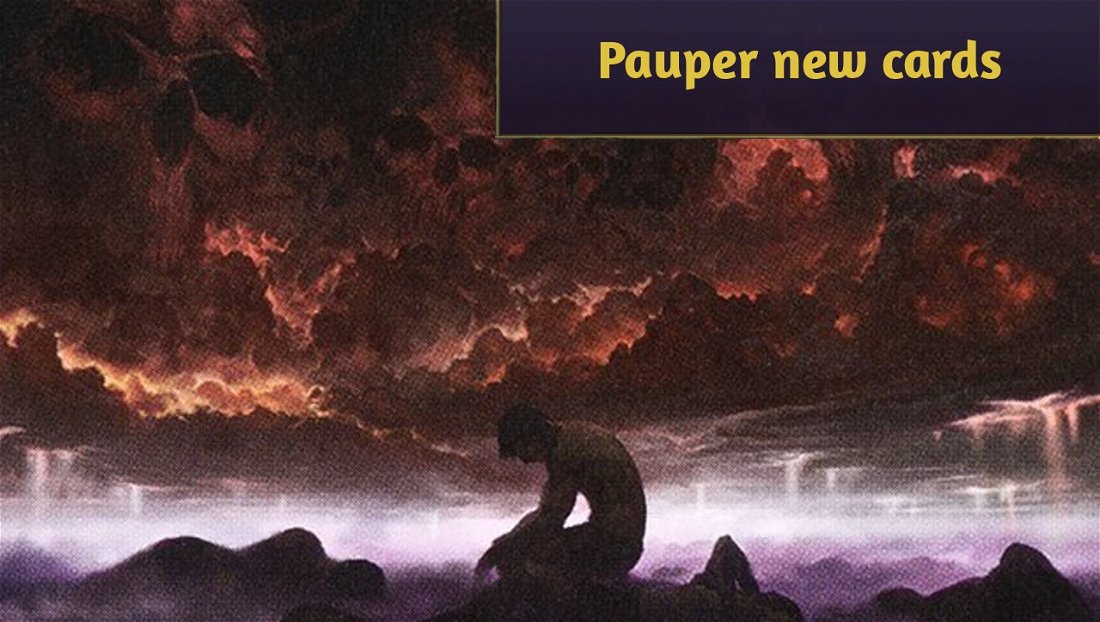Introduction
Commander, as a format, also known as Elder Dragon Highlander (EDH), conquered Magic players across the world, becoming the format which currently receives the most support and attention from Wizards of the Coast. With its unique approach of 100-card decks, powerful commanders and intense multiplayer interaction, Commander offers a game experience different from any other format, and it has become impossible to think about releasing a set without at least two decks built for this format.
However, throughout the years, certain cards have awakened unanimous aversion among Commander players. These cards are frequently criticized due to their excessive power, capability of throwing off the game's balance, or because they make matches frustrating and not very interactive.
This article explores the most hated cards from Commander, delving deep in the controversy and discussing why they create so much discussion among players. From unbeatable combos to mass destruction effects, each of these cards has their own reasons to be hated.
By examining these problematic cards, we hope to provide a broad view of what makes a card "hated" in the Commander format. Besides that, we'll discuss possible solutions to deal with these cards and promote a more balanced game environment which is fun for everyone involved.
10 - Time Warp and Other Extra Turns

This list will start with situations which are minor inconveniences, and scale exponentially. That being said, how about we start with cards that give players extra turns?
Commander is usually played with more than two players, and, with that, as the complexity of the table grows, how long it takes for all players to play their turn becomes very visible. This way, when the opponent at the furthest from you on the table plays a spell like Time Warp, which guarantees them one more turn to develop their schemes and their game, it is very possible that you place your cards in hand on the playmat and go drink some water, stretch, or go to the bathroom.
By the way, Time Warp is the most used version of this strategy in Commander, but not the most iconic one, which is Time Walk, one of the Power Nine, banned in this format.
Extra turns aren't predatory or irreconcilable situations that occur in a match and cause the humors of everyone involved to instantly turn sour, but depending on what's going on, it can certainly draw a few annoyed sighs out, after all, your turn to play may take even longer now.
9 – Counterspell and other counters

When a player plays an important card and another person simply counters it, that can create indignation and a feeling of frustration, after all, players enjoy having their spells resolved and that they occupy spaces in their piles and boards.
However, counter spells, such as Counterspell, are usually not seen as exaggeratedly negative, being treated more as an inconvenience or a "Wow, I could have won that game if that hadn't happened, what a pity" factor.
That brings certain groups in the game to place political agreements which limit the number of counters, or even veto them from the game, in an attempt at keeping the game flow going and allowing players to play their strategies with no interruptions. But, even with some of these vetoes, counters are only seen as something boring, and not as an immense problem.
The main card that represents this is Counterspell, the original Alpha counter, capable of countering all sorts of spells and responsible for making players become suspicious of two untapped islands.
8 - Rhystic Study and Tax Effects

Just like counters, at this point in the article we'll still talk about effects which cause a repetitive and boring situation to take hold of the game. We're talking about cards such as Smothering Tithe, Rhystic Study and Mystic Remora, which have abilities which help their player a lot, but that can't resolve - as long as an opponent pays mana.
Effects like these don't even come close to being unhealthy, once they're totally alternative and depend on players' disposition to pay this small tax each time the condition asks for it.
The great problem is monitoring those effects. It is quite common to have two things happen as the game goes on:
First, one of the players will rent a place on everyone's heads asking for each action that they do "Hey! Are you going to pay one mana for Rhystic Study???". That isn't incorrect, on the contrary, but it messes with the game's flow to have someone repeatedly ask about an effect.
And there's the second and worst option, this being one of your play mates will simply turn around and say "See, I'm sorry, you played four spells in these last few rounds and I forgot to mention Rhystic Study, but it's ok, I'll just draw 4 cards.", which can create a very heated, hours-long, discussion about how they should remember their own trigger effects and how they shouldn't draw those cards at that point in the game.
7 – Triumph of the Hordes

We're starting to move away from minor inconveniences and going into the "Oh, no, not this mess again!" situations. What sets apart Triumph of the Hordes from what we'll see further on, is that this is a card used to finish games - so, when we see it, we're dealing with a much closer and imminent end.
This sorcery gives all creatures on board the keywords Trample and Infect, the second one being most known as the ability which transforms damage dealt to players into poison counters. And here's the catch: Even though you start with double the amount of health points than in conventional Magic, the amount of poison counters to lose the game in Commander wasn't "reviewed", and it remains the same amount, which is, 10.
This way, Triumph of the Hordes acts like a Craterhoof Behemoth, only much faster, and it needs much less investment for the game to end. When we see a Triumph of the Hordes being played, it is a sign the match is about to end for at least one person on the table in a very sudden way.
6 – Niv Mizzet, Parun + Curiosity

Infinite combos with just a few cards happen a lot in EDH. After all, having access to 30 different years of cards will definitely end up creating some wonderful synergies, even by accident. Even if these combos, on purpose or not, bring you to victory practically automatically, many times they are quite specific and involve three of four combos, but when all pieces become present at the same time, it makes most players become even excited to see that their opponent managed to pull of the Commander equivalent of Exodia.
Except this case.
As someone who's an enthusiast of Niv Mizzet, Parun decks, I have to mention this duo. Pairing your big dragon Izzet which pings one damage every time you draw a card with any other aura which allows you to draw a card every time the enchanted creature deals damage creates an infinite loop.
You draw a card and deal one damage, which will make you draw another card, which will make you deal one more damage, which will make you draw another card, and so on and so forth.

Many can say that Commander's annoying and anti-fun combo is Sanguine Bond and Exquisite Blood, but this uses high-cost cards which are very specific and don't have that many replacements, such as Vito, Thorn of the Dusk Rose, and it simply creates a reaction like "Yeah, they've won, let's move on to the next."
As for the combo with Niv Mizzet, Parun, the situation gets worse. Firstly, there are many ways to start this combo, once cards like Curiosity, Ophidian Eye and Tandem Lookout can be used. Niv Mizzet, Parun will probably be seated quite comfortably in its Command Zone, only waiting for one of these cards to arrive.
Finally, once enchanted, it is necessary to destroy this dragon with alternative methods, such as enchantment or Planeswalker abilities, as instant sorceries or spells activate this cycle, which can't be answered by instants, or it starts again.
Besides that, this combo doesn't even give players the satisfaction of declaring "Yeah, it's over, let's move on to the next one", when the dragon is enchanted. Once the damage is dealt for each card drawn, the controlling player needs to measure each damage dealt meticulously and pray that they have enough cards to deal one damage infinitely. It all goes for nothing if in the end you only have 80 cards left in the deck and there are still three opponents with 40 health each.
This lil' combo is not only annoying, as it is a snooze fest, and unfortunately, it is still too trusty for the Niv Mizzet, Parun deck to have at least one of the pieces which make this possible. But in the end, it leads to a standstill victory in which one player keeps counting the cards in their deck, praying for the other three to be done with it and give up.
5 – Grip of Chaos and Chaos Effects

Cards such as Thieves' Auction, Grip of Chaos and Scrambleverse fit in this description. Cards of that sort are usually referred to as "Chaos Cards" and their effects, literally, scramble everything on all players' boards and piles, causing Commander to lose the last bit of its sense which it should have left around the tenth turn or so.
Grip of Chaos is an effect which exemplifies this type of card a lot, by changing the targets of any spell or ability to any other available target.
On one side, the idea of this card is to make the game fun and unpredictable, and it is always played by the sort of player who thinks they're the funniest person in the room. On the other side, all this fun and unpredictability is a mess. The strategy uses dice, coins, cards with multiple effects which make you count, assign numbers to cards and draw a random number to know which cards go on whose board and does what to whose dog.
Chaos cards do everything. Gamble health, choose random cards, everyone Cascading in the same rounds, one of the players having to make the others dinners and when the owner of this deck decides to play Goblin Game, you can be sure everyone will want to get up from the table with a deep hatred.
4 – Smokestack and other Stax

The name "Stax" comes from the plural form of the card Smokestack, and it refers to cards which lock down the game and force you to pay some sort of tribute, be it in the form of resources or game rhythm, forcing you into a slower cadence. Unlike cards such as Rhystic Study, discussed earlier, this tax isn't an option, and it is obligatory.
Smokestack itself, for instance, which forces players to sacrifice permanents for each counter placed on this artifact, or Thalia, Guardian of Thraben, which forces non-creature spells to cost one generic mana more.
Stax's strategy creates, yes, frustration with its obligatory taxes, but they are far from paralyzing the game completely and making it unplayable, with all of them able to be easily answered and destroyed, in case their costs are duly paid or countered.
3 – Tergrid, God of Fright

This here is probably the most hated creature (and commander) in the game. I've never seen so much hatred directed to such a small cardboard placeholder in particular. Tergrid, God of Fright has the effect of using your opponent's discarded and sacrificed cards as resources, this way only needing a very aggressive discard engine to build a strong board with all your opponent's card pieces.
And, obviously, players don't like that. As it has been said previously, players like to play and resolve their spells, and to see them performing their part on board. Dealing with discarding and constant creature sacrifice is frustrating on its own, but now, having to deal with everything the whole table discards or sacrifices going on a single player's board without paying for the cost of any of them is just too much.
Yes, Tergrid, God of Fright doesn't have any sort of condition to meet to use the opponent's cards, it simply puts them on their board with no further cost. That makes it easier for players to feel like their matches against that commander are boring and pointless, once this card completely polarizes the game very easily and causes a great unbalance regarding resources.
2 – Stasis and Similar Effects

From everything we discussed so far, we have covered two different types of cards which constantly break the game's rhythm. Cards which give a player the option to pay X cost to veto an action, such as Rhystic Study, and cards which halt the game's rhythm in exchange for an obligatory tax, but the game would move on once their demands were paid, like Smokestack.
But, what if we mention cards that don't let the game develop in any way and that's it? Stasis, Winter Orb and Static Orb are all effects which paralyze the game, preventing players from untapping lands and other permanents, which makes it very hard to play new cards, develop combat and other situations which require you to tap your creatures.
This way, the game starts developing extremely slowly, with no one doing anything besides drawing a card, looking at everyone else with a tired expression and passing their turn, reaching a situation described by the Commander Rules Committee as "Commander Purgatory", in which the game locks down in an unsolvable situation very easily if players can rarely take any advantage of it.
Players permanents become immobile, being untapped at a very slow pace, or not untapped, in general. And, though the effect seems symmetrical, it is quite likely that the player who built the deck uses some tricks, such as an Icy Manipulator, to tap Winter Orb before their own turn, allowing only them to untap their own permanent.
Effects like Stasis' make the game and its speed worse, and are responsible for many groans and angry faces on Commander tables, preventing a good development of the game. You need a very horrible tactic to be worse than this one and reach this list's first place...
1 – Armageddon and LD Cards

Land Destruction (LD) is a sort of funny effect. Previously, we discussed how there can be a political agreement regarding the use of counters in Commander, when players agree among themselves that, really, that game environment doesn't mix with Counterspell. Now, when we talk about Land Destruction, it seems we aren't dealing with a political agreement, and instead a conspiracy, dedicated to erasing Armageddon and its variations from Magic's history.
It is possible to know entire groups of players that have played for years that have never dealt with Land Destruction, just because they have learned how to play Commander this way, and learned that using this type of card is just wrong. It isn't weird to play with other three people who have never taken a Jokulhaups to the face, and still, shake with contempt if they see you playing a Wasteland on board.
However, it is possible to understand the efforts of this secret society which has sworn to eradicate from everyone's memories the history of land destruction cards. Using an Armageddon usually implies two scenarios:
In one of them, players go into the same condition previously called "Commander Purgatory", when I mentioned Stasis, when they'll have to limit their turns to drawing cards and have to gather all their lands back again until they can do something. The game becomes long and redundant, until someone can do something.
In another, more common, the player who triggers this effect already has a backup plan, such as many creatures or artifacts which create mana, or even an Omniscience. In this scenario, the player who destroyed the lands is the only one who starts playing many cards, while other players remain in Commander Purgatory, until they give up.
It isn't hard to understand how players hate this type of strategy. After all, even if a card destroys your creatures or other resources, we can still use lands to remake our strategy, but when someone casts a Decree of Annihilation, which ends your lands too, we can prepare ourselves to spend hours standing still just drawing cards and seeing other players play.
Final Words
In the end, these cards still exist and weren't banned by the Commander Rules Committee, so it isn't impossible to find someone who uses them in their decks.
The idea is always to appeal to that golden Commander rule - as long as everyone is in agreement, the game's potential is endless. Always communicate with other players regarding your deck, and the decks of the rest of the group, to see what is allowed or not.
See you next time!













— commentaires 0
, Réactions 1
Soyez le premier à commenter